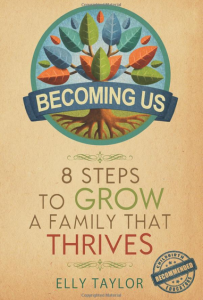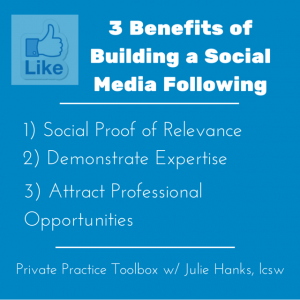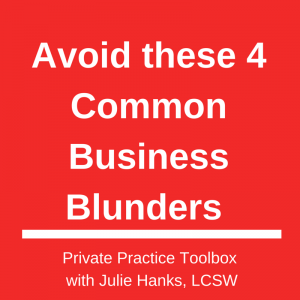
Discover how some very successful mental health professionals use blogging, social media, and other technologies as powerful tools for their therapy practices.
Elly Taylor, AARC, is an Australian Relationship Counsellor, Parenthood Researcher and advocate for emotional health. She teaches parents and professionals about the eight stages of early parenthood following pregnancy so families can bed down solid foundations for psychological, emotional and relational growth. You can learn more about Elly’s work at www.ellytaylor.com.
When and how did you first start putting time and effort into maintaining a strong online presence?
With two teenagers at home, "Facebook" was a dirty word in our house a few years ago! Then, after my book Becoming Us was published here by Harper Collins in Australia, I met up with a very successful author friend who was giving me tips on marketing and how social media had made all the difference for her. I squirmed awkwardly in my seat and said something like “I really want my book to spread through word of mouth." She looked at me straight and said “Elly, these days that’s called social media.” So I reluctantly hopped on Facebook and found it completely overwhelming! Until I found there were groups. I love groups; part of my job is leading them. After a few months of participating in conversations in a couple of different groups about birthing, I received my first invitation to present my research in the United States... through a Facebook message!
Please describe what social platforms you currently use.
I would use more if I could get off Facebook! I’m on LinkedIn and will be more active on there when I start my group for Family Focused Perinatal Professionals early next year. I’m also on Twitter, but don’t find it as warm and fuzzy as Facebook. I like seeing people’s kid pics. I did start a couple of Pinterest boards, but I’m worried I will get completely lost in there and weeks will pass and I’ll forget to eat…
About how much time do you devote to your online presence? How do you balance it with your other work responsibilities?
Far too much at the moment! The plan for next year is to spend two days face-to-face with clients, one in my office and one via Skype for interstate and overseas clients. That leaves three days for writing and social media-ing. And the weekend to recover from my online hangover!
What kinds of things do you use to inspire your content creation; what do you write about?
I try to write about the stuff that’s unspoken, and with expecting and new parents, there’s plenty to cover! I write about the ways parenthood changes life and love and how to work with the changes and support your partner to do the same so you both grow together through them. So many relationships come undone through lack of awareness. In this information age, that shouldn’t be happening.
I also have found in my research that so many aspects of our culture set new families up for failure, that there’s a huge information gap between therapy and birth professionals, and therefore such a massive gap between expectation and reality for parents. I’ll be starting my regular blog soon, one for professionals to cross-pollinate their expertise and one for parents so they get the benefits of that. I’d like to do what I can to help cross the divide.
How do you best balance personal and professional in your online activities? Please give examples.
I have two FB accounts, one in my professional name and one in my married name, which is private. I don’t share family stuff on my professional page, although I know many who do and I’m probably being over-cautious. I do share some stories from my own life my talk for the Parenting 2.0 conference in Dublin is a good example!), but I check with my hubby that he’s OK with that beforehand…or maybe just afterwards!
What is some tangible evidence that your online presence has grown your business?
All my speaking invitations in the US and UK have come through social media contacts. My Facebook friends were also the ones who encouraged me to develop trainings based on the content in my book. I’ll be rolling out Becoming Us webinar trainings next year so that birth, health and therapy professionals have ideas, direction, and support to work with the expecting and new parents in their care.
What other ways has your strong online presence helped you?
Oh gosh, in lots of ways! If I have an idea I’m not sure about (logo, tag lines, etc), I’ll run it by my online friends. I’ve asked for feedback on my book and website and taken it all on board so when I finally launch my webinar series early next year, it’s been given a really thorough test run first.
A lovely birth professional friend referred to me as a “Parenthood Tour Guide” the other day, and then another one said she thought of me as “The Family Whisperer." I was so touched and thrilled! I love the support and validation I receive through Facebook groups; so many wonderful, engaged, enlightened souls who are all there to lift and help each other. I remember in the years before I got on social media, I was often lacking the support and collaboration I needed to get my work off the ground. I teared up just yesterday when a FB friend offered to be an administrator for a FB group I’m starting up next year and another offered to do a video testimonial for my book.
What have been some of the biggest challenges you’ve encountered creating and maintaining your online presence?
Trying not to get sucked into the Facebook vortex and get other stuff done, like actually develop the content! I get so carried away by seeing everyone's pictures and news and cute videos. I made the mistake of announced the Becoming Us training courses just the other day at the same time I was supposed to be picking up my daughter from school.
How have you overcome those challenges?
I keep telling myself I’m going to get an egg timer…
What tips or resources can you recommend to help therapists who are new to the online world of blogging, social media, SEO, etc.?
Start slowly, observe at first to see what others are doing while you get your bearings, take your time, and build your confidence. See what ignites your passion – that’s where your best writing will come from. See where the gaps are. When I first got on FB and joined a bunch of birth professional groups, I noticed that fathers (and partners) were often left out of the conversations completely. I feel strongly that from an adult attachment perspective, including and supporting dads/partners during pregnancy, birth and early parenthood has major long-term benefits for the whole family. That's where I began my journey, and it was worked out well so far!

Elly Taylor, AARC
Australian Relationship Counsellor, Parenthood Researcher
Facebook Page: www.facebook.com/BecomingUs
Website: www.ellytaylor.com
LinkedIn: linkedin.com/in/ellytaylor
Get practice tips and blog updates in your inbox. Sign up for the Private Practice Toolbox Newsletter here.
Join my Private Practice Toolbox Facebook group and connect with over 3000 therapists around the globe in 2 simple steps: 1) Click request to join the group & 2) Fill out this brief questionnaire before you'll be added to the group.
Need help blogging? Join my ongoing therapist blog challenge!








As healers, we genuinely like to do our work. Guiding clients through the therapy process and seeing them make progress is why we do what we do. But if you're in private practice, you know there's a lot going on in the back end and that it's crucial to run an efficient and organized business.